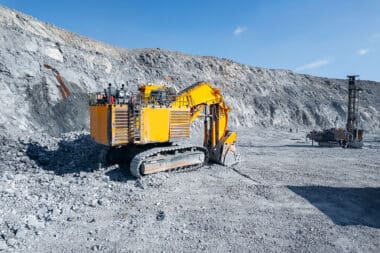A new round of government staff cuts led by Elon Musk has stirred up plenty of debate across several key U.S. agencies, leaving many to wonder how national security and public welfare might be affected. This sweeping move took place over Thursday and Friday and targeted recently hired employees in a variety of federal departments, prompting heated discussions about its effect on important services and national defense capabilities.
Agencies hit by the cuts
These layoffs have swept through a wide range of U.S. government agencies. They include the Centers for Disease Control and Prevention (CDC) (which plays a big role in handling public health emergencies), the Small Business Administration (which supports small enterprises), Homeland Security (the agency responsible for keeping the nation safe), the Department of Veteran’s Affairs (that delivers services to military veterans), the Department of Education (which helps shape school policies), and the National Nuclear Security Administration (NNSA) (charged with managing the country’s nuclear arsenal).
Listing these agencies shows the broad reach of the cuts—from health services to national defense—and each one plays a key role in the federal system, making the decision particularly contentious.
In trying to bring mammoths back to life, scientists create a strange creature
How the layoffs affected the nNSA
The National Nuclear Security Administration (NNSA) took a heavy hit, with between 300 and 400 workers involved in nuclear arms work losing their positions. The NNSA is in charge of building, designing, and managing the United States’ nuclear arsenal, which ranks just behind Russia’s in size. Firing staff members who oversee nuclear weapons management has raised concerns about whether the nation can keep a solid grip on one of the world’s largest arsenals.
Adding to the confusion, officials in charge of the layoffs reportedly weren’t even aware that some of the dismissed employees had been directly involved with managing nuclear weapons. Although efforts are now underway to rehire some of these individuals, the process has been complicated by the fact that former employees no longer have access to their government email accounts.
Money matters and ideological angles
These job cuts are part of Musk’s broader DOGE campaign (a push aimed at rooting out fraud and cutting bureaucratic waste). Since Donald Trump took office, Musk’s moves have shaken up a number of big programs—ranging from training initiatives at the Department of Education to operations at the Consumer Financial Protection Bureau and biomedical research funded by the NIH.
Supporters claim that this campaign has saved about $37 billion, but critics argue that the strategy is driven more by ideology than by smart spending. They cite mishandling at the NNSA as an example of poor management on the part of the campaign. Plus, Musk’s description of areas like cancer research, environmental protection, and nuclear safety as “wasteful” has definitely sparked its fair share of controversy (given how many people view these subjects as seriously important).
What it means for national defense
These cuts reach far beyond short-term budget wins. For example, former President Donald Trump has pushed for denuclearization—a tough process that needs both political drive and highly trained personnel to safely dismantle warheads. It seems that the current emphasis on quick PR wins is overshadowing the long-term duties tied to managing the nation’s nuclear arsenal.
With these shifts underway, everyone involved is being urged to balance quick fixes with the long-term fallout when considering policy moves that affect how our national security is set up.
In light of these government layoffs under Musk’s influence—touching everything from health agencies like the CDC to defense heavyweights like the NNSA—it’s clear how intertwined fiscal policies are with everyday life. Shifts in government priorities and resource allocations can change our daily experiences across the country while trying to keep safety measures up in a time when global challenges are more pressing than ever (a real wake-up call for many).








